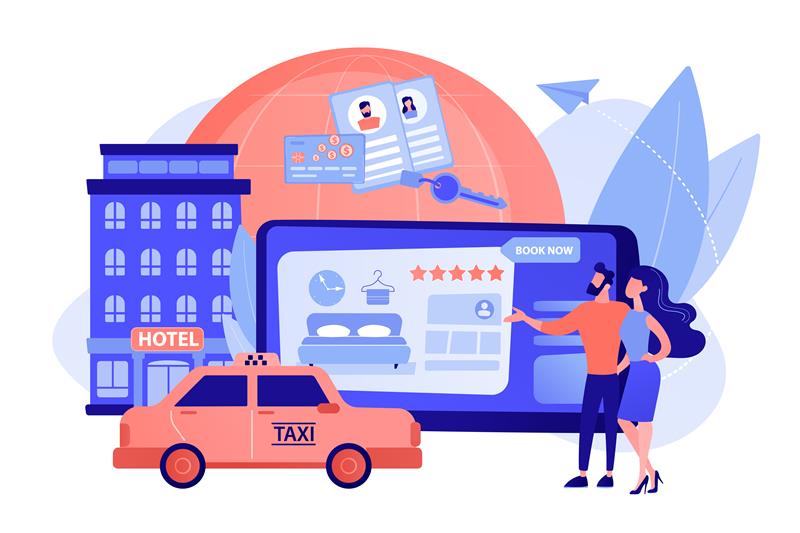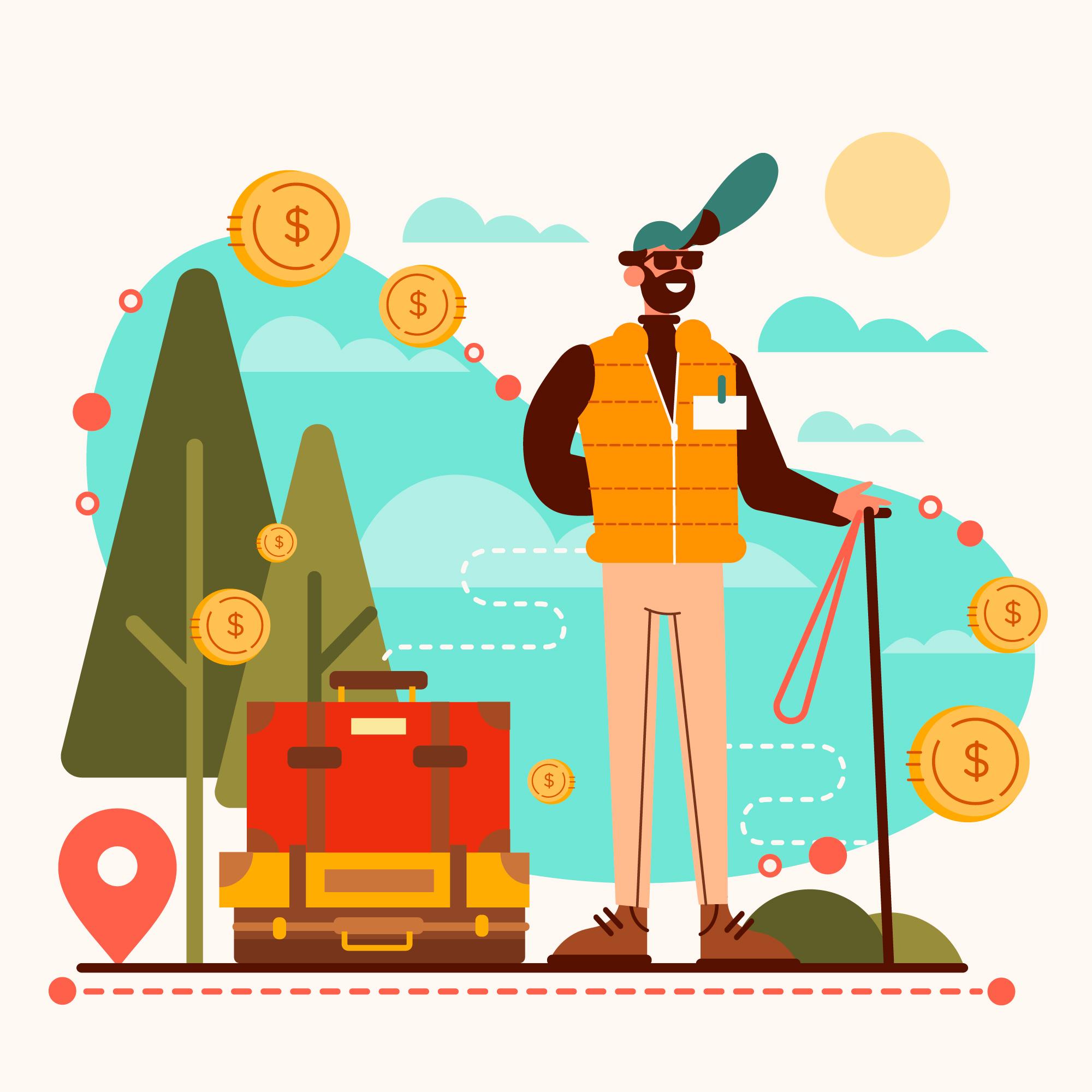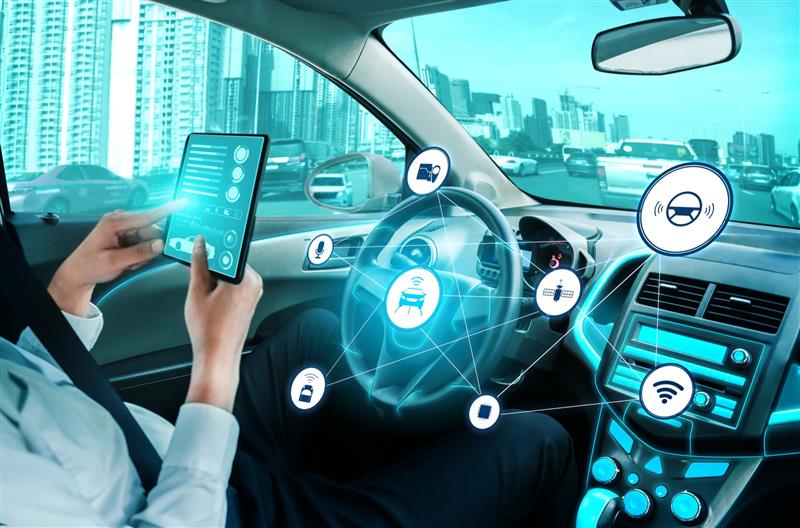Uber and Airbnb Secrets: How They Revolutionized Travel Forever

Introduction
Travel has always been more than a logistical activity; it’s a reflection of culture, human curiosity, and the desire for new experiences. For decades, urban transportation and hospitality operated under fixed, standardized systems. Traditional taxis, buses, and hotels dominated cities and tourist destinations, offering basic reliability but very limited personalization, flexibility, or convenience. Travelers often faced unpredictable costs, long wait times—often exceeding 15 minutes during peak hours in major cities—and inconsistent service quality. Booking accommodations also posed challenges, with studies indicating that hotel booking processes had a friction score of around 25%, largely due to complex pricing structures and availability issues. This process of booking transportation or accommodation was confusing, fragmented, and time-consuming.
In the last decade, companies like Uber and Airbnb have not just offered alternative solutions—they have revolutionized the way we travel. By leveraging technology, data, and the sharing economy, they addressed long-standing inefficiencies in both transportation and hospitality. Uber transformed urban mobility by introducing ride-sharing platforms that provide instant booking, transparent pricing, and real-time driver tracking. Airbnb reshaped lodging by connecting travelers with hosts offering personalized, unique accommodations and cultural experiences, going far beyond traditional hotel stays.
The success of these companies highlights a broader lesson: innovation in travel isn’t only about providing a service—it’s about reimagining entire ecosystems. Uber and Airbnb focused on consumer needs, trust, and scalability, turning previously fragmented markets into seamless, user-centric platforms. Their strategies have inspired entrepreneurs globally and continue to influence emerging travel technologies.
In this blog, we will identify the core strategies and innovations that drove Uber and Airbnb's disruptive impact on travel. By breaking down their pivotal moves, such as leveraging technology for dynamic pricing and creating trust systems, you'll gain insights into what makes these companies tick. We will assess their influence on consumer behavior and explore how traditional companies can adapt by integrating mobile-first platforms and personalization. To conclude, you'll find actionable lessons crafted for startups and travel providers seeking growth and innovation, including adaptable frameworks for digital transformation and customer-centric models.
The Traditional Travel Landscape Before Disruption

Before the emergence of Uber and Airbnb, travel was largely defined by rigid structures. Urban transportation relied heavily on taxis, buses, and private vehicles, with services that were inconsistent and often inconvenient. Hailing a taxi on the street, calling a dispatch center, or waiting for public transit were common methods. However, these systems lacked predictability, transparency, and convenience. Riders could not track their rides in real-time, fares were often unclear, and service quality was inconsistent across regions.
Similarly, the hospitality industry was dominated by hotels and resorts. While hotels provided reliability and basic amenities, they lacked personalization and flexibility. Travelers seeking unique or culturally immersive experiences were limited to boutique hotels or informal rentals, which often lacked trust systems and online booking convenience. Vacation rentals existed, but the process was fragmented, making it difficult for travelers to find safe, verified options.
Consumers’ expectations were evolving. With the rise of smartphones, mobile apps, and on-demand services, travelers increasingly demanded instant booking, transparency, and personalization. They wanted control over where they stayed, how they moved, and what experiences they could access. Traditional providers were slow to respond, creating gaps that innovative companies could exploit.
This backdrop set the stage for the arrival of Uber and Airbnb. Building on these traditional foundations, both companies pinpointed key inefficiencies and pain points—and leveraged technology to create seamless, scalable solutions.
How Uber Revolutionized Transportation

Uber’s disruption of urban transportation is a textbook example of technology-driven innovation. Unlike traditional taxis, Uber allowed users to book rides instantly through a mobile app, track drivers in real-time, and pay digitally. This streamlined the entire process, creating unprecedented convenience and transparency.
Dynamic Pricing and Efficiency
One of Uber’s most notable innovations is dynamic pricing, commonly referred to as surge pricing. Fares fluctuate based on demand and supply, ensuring ride availability during peak periods. While controversial initially, surge pricing solved the fundamental problem of urban mobility: connecting riders with drivers in high-demand situations. For instance, during New York City snowstorms, Uber’s dynamic pricing helped maintain ride availability when traditional taxis were scarce.
Trust as a Core Pillar
Uber invested heavily in trust and safety. Driver background checks, vehicle inspections, and real-time GPS tracking created a safer experience than traditional taxis in many cities. Additionally, Uber’s rating system, which allows both riders and drivers to review each other, fosters accountability and high service standards. This level of transparency was a major factor in building user confidence globally.
Global Expansion and Market Adaptation
Uber's expansion strategy involved careful adaptation to local regulations and consumer behavior. In India, Uber partnered with local payment providers like Paytm to accommodate a cash-preferred market. In Europe, it offered UberX and ride-sharing options to comply with stringent taxi regulations, gaining traction in cities like Paris, Berlin, and Madrid. In Africa, partnerships with local telecoms facilitated mobile payments, enabling Uber to scale efficiently in cash-driven economies. For startups, it's crucial to conduct thorough research on local regulatory environments before entering new markets. Anticipating potential legal challenges allows companies to tailor strategies that prioritize compliance and flexibility. Engaging with local stakeholders and proactively seeking legal counsel can help in navigating these regulatory landscapes effectively, thereby avoiding costly missteps.
Technology-Driven Personalization
Uber’s platform leverages GPS, data analytics, and predictive algorithms to optimize routes and reduce wait times. Options like UberPOOL, UberXL, and premium Uber Black allow travelers to select services based on convenience, budget, or comfort. These features demonstrate Uber’s user-centric design, giving riders flexibility and control over their journey.
Impact on the Transportation Industry
Uber forced traditional taxi services to modernize, introducing apps, GPS tracking, and online payment options. It influenced urban planning, public transit usage, and car ownership trends, particularly in large cities. By focusing on trust, efficiency, and technology, Uber redefined the standard for urban transportation worldwide, creating a scalable blueprint for future innovators in the travel and mobility sectors.
How Airbnb Disrupted Hospitality
Airbnb transformed hospitality by creating a peer-to-peer home-sharing platform, connecting travelers with hosts offering accommodations ranging from apartments and villas to treehouses and tiny homes. This approach offered travelers personalized, flexible, and culturally immersive experiences that traditional hotels could rarely provide.
Personalized Booking Experience
Lucía, a digital nomad living in Barcelona, opens her Airbnb app to personalize her upcoming stay. Her work as a freelancer gives her the flexibility to move frequently, so she's looking for a place that matches her vibrant lifestyle. With Airbnb's platform, she effortlessly navigates through the listings. By applying filters, she selects options based on location, amenities, price, and style. In just a few taps, Lucía can choose between a modern loft in Eixample, offering fast Wi-Fi for her work needs, a historic Gothic Quarter apartment for its charm and accessibility, or a serene countryside villa in Catalonia when she needs a creative escape—all from a single platform. Unlike hotels that offer standardized experiences, Airbnb prioritizes authenticity and variety, meaning Lucía can find a home that aligns perfectly with her unique preferences.
Trust and Safety Mechanisms
Airbnb built trust through host verification, identity checks, and user reviews. Both hosts and guests rate each other, fostering accountability. Additional measures, such as customer support and insurance, further ensure user confidence. These systems allowed Airbnb to scale globally while maintaining reliability and safety.
Innovations Beyond Lodging
Airbnb introduced Airbnb Experiences, offering travelers curated local activities hosted by residents. From cooking classes in Tuscany to guided hikes in Costa Rica, these experiences allow travelers to engage deeply with local culture. This extension of services differentiates Airbnb from traditional hotels, making it a holistic travel platform.
Global Impact
Airbnb’s rise democratized lodging, empowering homeowners to monetize their properties and enabling travelers to access unique accommodations worldwide. Hotels had to respond with flexible booking policies, personalized services, and loyalty programs. Airbnb’s success illustrates the power of the sharing economy, showing that decentralized, peer-to-peer systems can rival established centralized industries.
Airbnb faced regulatory hurdles, including restrictions on short-term rentals in cities like New York, Berlin, and Barcelona. To illustrate Airbnb's regulatory adaptation, consider a timeline of the New York regulatory shifts between 2014 and 2021. This period saw multiple phases of compliance and adaptation by Airbnb:
2014: New York strengthens its laws on short-term rentals, increasing restrictions.
2016: Airbnb introduces tools to help hosts comply with local laws, focusing on transparency and accountability.
2018: New York City implements stricter registration requirements. Airbnb collaborates with city officials to develop practical registration systems for hosts.
2020: New York policies evolve to include pandemic considerations, prompting Airbnb to incorporate health and safety protocols in compliance strategies.
2021: Airbnb launches a New York compliance guide for hosts, outlining legal guidelines and best practices, illustrating a mature adaptation strategy.
The company mitigated challenges by introducing compliance tools, responsible hosting programs, and engagement with local authorities. This adaptability highlights that successful disruption requires continuous innovation and strategic navigation of regulations. To assist startups in managing legal risks effectively, here is a quick compliance checklist:
- Engage Regulators Early: Establish open lines of communication with regulatory bodies to anticipate potential legal challenges.
- Build Compliance into Product Design: Incorporate legal requirements and best practices from the onset of product development.
- Foster Regular Stakeholder Engagement: Involve all key stakeholders, including legal counsel, in strategic planning to ensure regulatory alignment.
- Develop a Robust Monitoring System: Implement tools to regularly review and update compliance practices in response to evolving regulations.
- Train and Educate Teams: Ensure all employees understand regulatory requirements and how they impact company operations.
Adopting these principles can position companies to be proactive rather than reactive in their regulatory approach, thereby enhancing their ability to innovate while remaining compliant.
Common Secrets Behind Their Success

Despite operating in different sectors, Uber and Airbnb share common principles that enabled their disruptive success:
- Customer-Centric Innovation
- Both companies identified pain points in their industries and designed solutions around user needs, emphasizing convenience, transparency, and flexibility.
- Technology-Driven Operations
- Mobile apps, predictive algorithms, and data analytics enabled scalability, real-time optimization, and enhanced user experience.
- Trust and Reputation Systems
- Ratings, reviews, and verification processes allowed users to engage confidently in peer-to-peer transactions. However, while these reputation systems enhance trust, they also raise ethical concerns. The influence of ratings can inadvertently turn them into livelihood gatekeepers, potentially introducing biases that impact individuals and their businesses. It's crucial for readers to consider these risks and weigh the implications, prompting a need for fairness and transparency in maintaining trust To ensure these systems are designed equitably, businesses can implement regular audits, establish clear and transparent appeals processes, and actively work to identify and mitigate biases. Providing actionable tips for designing reputation systems, such as incorporating diverse feedback and leveraging AI to detect anomalies, can offer founders guidance on fostering fairness and trust in their platforms..
-
Scalability via the Sharing Economy
- By leveraging network effects, both companies expanded globally without heavy infrastructure investments.
- Continuous Iteration and Adaptation
- Regular updates, feature expansions, and market-specific strategies ensured that both companies remained competitive.
These shared principles show that disruption is not about offering a product—it’s about rethinking the system, creating ecosystems where users are empowered, and continuously refining services.
Lessons for the Travel Industry

The strategies of Uber and Airbnb offer actionable lessons:
- Embrace Digital Transformation: Traditional providers must implement mobile-first platforms, online booking, and digital payments.
- Personalization Matters: Travelers now expect experiences tailored to their preferences. Companies can leverage data analytics and AI to predict needs and enhance satisfaction.
- Trust and Community Are Essential: Reputation systems, verification, and responsive support foster loyalty.
- Leverage the Sharing Economy: Peer-to-peer models increase capacity and flexibility while reducing infrastructure costs.
- Monitor Trends and Adapt: Urban mobility shifts, eco-conscious travelers, and immersive experiences should guide innovation.
Travel companies integrating these lessons can innovate while maintaining reliability, offering solutions that resonate with modern travelers.
The Future of Travel
Travel is evolving rapidly, influenced by technology and changing consumer expectations:
- Autonomous Vehicles: Self-driving cars and intelligent routing will further transform urban commuting. To bring this futuristic vision closer to reality, businesses can experiment with a pilot project such as a five-car autonomous shuttle on a hotel campus. This pilot could offer guests seamless transportation within the hotel grounds, showcasing the potential of autonomous technology and providing valuable insights for scaling broader implementations. These actionable experiments demystify the innovation, making it more tangible and accessible for companies exploring future mobility solutions.
- Immersive Travel Experiences: Virtual and augmented reality may allow travelers to explore destinations before booking.
- Sustainable Travel: Energy-efficient accommodations and carbon-offset options are becoming mainstream.
- Hyper-Personalization: AI-driven recommendations can optimize itineraries and experiences.
- Expansion of Sharing Economy Models: Peer-to-peer services may grow into equipment rentals, guided tours, and localized experiences.
By understanding the principles behind Uber and Airbnb, startups and traditional companies can deliver convenience, personalization, and trust-driven services, shaping the next wave of travel innovation. To stand out, founders can focus on strategies like targeting underserved niches where specific traveler demographics might be overlooked. This could involve using unique technologies such as advanced AI-driven recommendation systems or enhancing user experiences by providing superior customer service that prioritizes user feedback and satisfaction. Exploring these differentiation strategies can empower businesses to innovate in ways that resonate with modern travelers and foster competitive advantages.
Conclusion: Why Uber and Airbnb’s Disruption Matters
Uber and Airbnb are living proof that true disruption reshapes entire industries—and transforms the way we live, move, and connect. Their visionary use of technology and relentless focus on user experience have not just influenced urban mobility and hospitality; they have empowered millions to travel easier, smarter, and more confidently than ever before. Today, travel is no longer simply about reaching a destination, but about embracing seamless, personalized, and trustworthy experiences that enrich our lives.
Entrepreneurs and travel businesses should study Uber and Airbnb’s strategies—leveraging technology, the sharing economy, and trust—to innovate, scale, and meet evolving customer expectations. Now is the time to reimagine your business and lead the next wave of travel innovation
The future of travel is shaped by autonomous vehicles, AI-driven personalization, immersive experiences, and sustainable tourism. Companies embracing these trends while maintaining trust and customization will lead the next phase of innovation. Uber and Airbnb’s journeys prove that disruption is about rethinking systems, ecosystems, and user engagement, not merely replacing existing services.
By internalizing their strategies and lessons, travelers, startups, and traditional businesses can navigate a world where travel is efficient, immersive, and transformative, ensuring that every journey is seamless, enjoyable, and innovative.
FAQs
Q1: How did Uber change transportation globally?
Uber introduced ride-sharing apps, dynamic pricing, and GPS tracking, revolutionizing urban mobility and influencing car ownership and public transit trends.
Q2: How did Airbnb change hospitality?
Airbnb enabled peer-to-peer home-sharing, offering personalized, unique accommodations while creating trust mechanisms like reviews and verification.
Q3: What lessons can startups learn from Uber and Airbnb?
Key lessons: customer-centric innovation, leveraging technology, building trust, scalable business models, and continuous iteration.
Q4: What is the future of travel technology?
Trends include autonomous vehicles, AI personalization, virtual reality experiences, and sustainable travel solutions.
Q5: Why is trust important in travel platforms?
Trust ensures safe and reliable peer-to-peer interactions, essential for building loyalty and confidence.
Q6: How can traditional travel companies adapt?
By adopting digital platforms, offering personalized experiences, integrating trust systems, and leveraging sharing economy principles.
Q7: What is the sharing economy in travel?
It refers to peer-to-peer services that allow users to share resources like vehicles, homes, or experiences, maximizing convenience and accessibility.
Q8: How do Uber and Airbnb maintain competitiveness?
Through continuous innovation, market adaptation, user feedback integration, and technology enhancements, both remain leaders in travel disruption.
